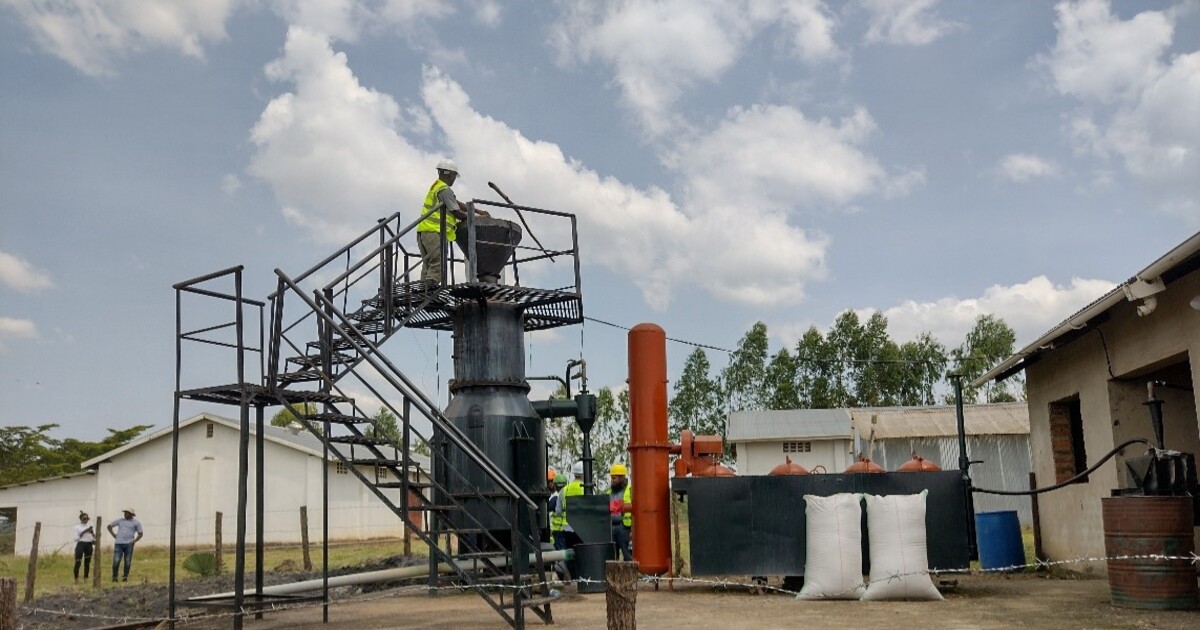New Insights into Integration of Biofuels for Power Generation
A special issue of Energies (ISSN 1996-1073). This special issue belongs to the section "A4: Bio-Energy".
Deadline for manuscript submissions: closed (22 April 2025) | Viewed by 1350

Special Issue Editors
Interests: biofuels; turbomachinery; low-carbon energy generation
Special Issue Information
Dear Colleagues,
In the quest for sustainable energy solutions, biofuels and biomass have emerged as key players in the transition from fossil fuels to renewable energy sources. These bio-based energy carriers not only offer a promising alternative to conventional fuels but also contribute to reducing greenhouse gas emissions and enhancing energy security. The conversion technologies associated with these resources, such as anaerobic digestion, pyrolysis, and gasification, have seen significant advancements, improving efficiency and scalability.
Moreover, the integration of bio-based fuels with energy conversion systems such as micro gas turbines and gas engines presents unique opportunities to harness the full potential of these renewable resources. These technologies have shown promise in both small-scale distributed power generation and larger-scale industrial applications. However, challenges remain in integrating and optimizing these systems for performance, reliability, and environmental impact.
This Special Issue aims to present and disseminate the latest research and technological advancements in the production, conversion, and application of biofuels and biomass. We seek contributions that explore innovative approaches, experimental studies, modelling, and system integration related to these sustainable energy resources.
Topics of interest for publication include, but are not limited to, the following:
- Production and utilization of biofuels;
- Advanced anaerobic digestion techniques for biogas production;
- Pyrolysis and gasification processes for bio-oil and syngas generation;
- Development and optimization of micro gas turbines and gas engines for biofuel applications;
- Integration of bio-based energy carriers in hybrid energy systems;
- Environmental impact assessment and life cycle analysis of bioenergy systems;
- Novel applications of biofuels in transportation and industrial sectors;
- Modelling and simulation of biofuel production and conversion processes;
- Challenges and solutions in the large-scale deployment of bioenergy technologies;
- Innovations in feedstock preparation and pretreatment for bioenergy production.
We invite researchers, engineers, and practitioners working in the field of bioenergy to contribute their latest findings and developments. Your submissions will help advance the understanding and implementation of sustainable energy solutions that are crucial for a greener future.
Prof. Dr. John Allport
Dr. Gina Javanbakht
Guest Editors
Manuscript Submission Information
Manuscripts should be submitted online at www.mdpi.com by registering and logging in to this website. Once you are registered, click here to go to the submission form. Manuscripts can be submitted until the deadline. All submissions that pass pre-check are peer-reviewed. Accepted papers will be published continuously in the journal (as soon as accepted) and will be listed together on the special issue website. Research articles, review articles as well as short communications are invited. For planned papers, a title and short abstract (about 250 words) can be sent to the Editorial Office for assessment.
Submitted manuscripts should not have been published previously, nor be under consideration for publication elsewhere (except conference proceedings papers). All manuscripts are thoroughly refereed through a single-blind peer-review process. A guide for authors and other relevant information for submission of manuscripts is available on the Instructions for Authors page. Energies is an international peer-reviewed open access semimonthly journal published by MDPI.
Please visit the Instructions for Authors page before submitting a manuscript. The Article Processing Charge (APC) for publication in this open access journal is 2600 CHF (Swiss Francs). Submitted papers should be well formatted and use good English. Authors may use MDPI's English editing service prior to publication or during author revisions.
Keywords
- biofuels
- biomass
- anaerobic digestion
- pyrolysis
- gasification
- biogas
- bio-oil
- syngas
- micro gas turbines
- gas engines
- energy conversion systems
- hybrid energy systems
- environmental impact assessment
- sustainable energy
- renewable energy sources
- feedstock preparation
- pretreatment innovations
- bioenergy technologies
Benefits of Publishing in a Special Issue
- Ease of navigation: Grouping papers by topic helps scholars navigate broad scope journals more efficiently.
- Greater discoverability: Special Issues support the reach and impact of scientific research. Articles in Special Issues are more discoverable and cited more frequently.
- Expansion of research network: Special Issues facilitate connections among authors, fostering scientific collaborations.
- External promotion: Articles in Special Issues are often promoted through the journal's social media, increasing their visibility.
- Reprint: MDPI Books provides the opportunity to republish successful Special Issues in book format, both online and in print.
Further information on MDPI's Special Issue policies can be found here.





